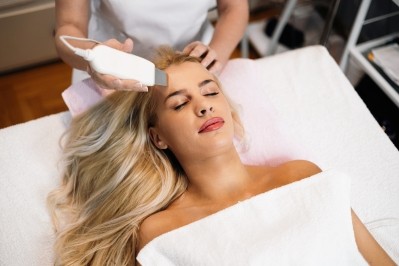Tailored solutions: Aesthetic physician highlights potential of personalised skin care for effective patient care
![An aesthetic physician hopes to see the potential of personalised skin care realised in the medical aesthetic space. [Getty Images]](/var/wrbm_gb_food_pharma/storage/images/_aliases/wrbm_large/publications/cosmetics/cosmeticsdesign-asia.com/article/2024/09/10/aesthetic-physician-highlights-potential-of-personalised-skin-care-for-effective-patient-care/17698141-1-eng-GB/Aesthetic-physician-highlights-potential-of-personalised-skin-care-for-effective-patient-care.jpg)
Dr Daniel Chang is a Singapore-based aesthetic physician, laser and hair specialist, with more than 15 years of experience in the field. He is also a physician mentor that has trained over 100 doctors regionally.
In recent years, Chang has seen an uptick in patients coming in for non- or minimally invasive treatments. Many of them are young urban professionals who may not necessarily like to go under the knife.
“The trend now is that surgery is going down. You have a lot of people flying to Korea or Bangkok for a quick fix or something gentler. Even people who used to do surgery are thinking about these treatments because they don’t want the downtime,” said Dr Chang.
He believes this trend will continue growing in popularity and become a norm.
“I think [getting aesthetic treatments] will become more and more prevalent in the population as people who go for them get younger as well.”
Dr Chang hopes cosmetic manufacturers can keep up with the growing demand by offering more innovative solutions for patients.
In particular, he believes there is huge potential in personalisation.
“I think a personalised formulation would be good because now all the formulations I would say are quite generic. Using, for example, biohacking, AI-driven data, patient’s own day-to-day skin regime and history. Using this kind of data to create skin care could potentially be very useful.”
At the same time, Chang expressed doubts and concerns about personalised beauty companies in the market today.
“I know there are already smaller companies in this area, but we don’t really know to what extent they are really personalised. Even if they do input the patients’ data, we don’t know if this is just computer-generated information and whether it can translate into effective products.”
These companies would also have to work closely with physicians to ensure that the products are truly safe and effective for the patients. Such an arrangement would bridge the gap between technology and the human touch.
Chang added: “I’m not sure the smaller companies would have the resources to implement this because we’re talking about a lot of data. That’s why I think the big companies should do this. A company like L’Oreal would have good data and the know-how.”
The L’Oreal Groupe is the owner of medical aesthetic brands such as SkinCeuticals and SkinBetter Science.
Wellness and aesthetics
According to Chang, biotherapeutics is the hottest topic in the aesthetic world today.
“For example, we are looking at growth factors, DNA fragraments, polynucleotides and exosomes. Exosomes are the new thing right now and the difference is that it is a transport vesicle that contains fragments of DNA which can be manipulated and genetically engineered while DNA and stem cells are more ‘random’.”
A broader trend he has observed is the incorporation of wellness and self-care.
“The mind-body connection is very important right now. We all know that people want to look good to make them feel more confident. The mind-body influence is getting more important with the awareness of mental health,” said Chang, who is the founder of Lives of SG, a non-profit initiative led by a team of volunteers to improve the awareness of mental health conditions and provide support to young professionals in Singapore.
“How this has affected aesthetics is that we are seeing more clinics opening up medi-spas. These are one-stop wellness centres that give you the experience of healing through all your five senses. At the same time, I think beauty salons will start opening a medical arm because they will find that their client pool is also looking for aesthetic treatments.”
Furthermore, Chang has observed an increasing awareness of the gut-brain and gut-skin axis among patients, which is driving them to pursue health eating and health supplements.
“I do think supplements have role. Omega-3 for example will help people with very dry skin and you have hyaluronic acid for hydration. For hair loss, people take biotin and fish protein supplement in hope that the protein will stimulate hair loss. However, it may help some people, but not all.”
![Incospharm uses novel filtration method to develop a range of 10 plant-based exosomes. [Getty Images]](/var/wrbm_gb_food_pharma/storage/images/_aliases/wrbm_medium/publications/cosmetics/cosmeticsdesign-asia.com/headlines/formulation-science/plant-based-exosomes-incospharm-uses-innovative-filtration-technique-to-develop-cica-dragon-fruit-derived-exosomes/17520889-1-eng-GB/Plant-based-exosomes-Incospharm-uses-innovative-filtration-technique-to-develop-CICA-dragon-fruit-derived-exosomes.jpg)

![Beauty devices are outpacing derma beauty growth. [Getty Images]](/var/wrbm_gb_food_pharma/storage/images/_aliases/wrbm_medium/publications/cosmetics/cosmeticsdesign-asia.com/headlines/market-trends/beauty-devices-represents-major-opportunity-for-derma-beauty-growth/17157506-1-eng-GB/Beauty-devices-represents-major-opportunity-for-derma-beauty-growth.jpg)
![Just in case you missed it, we’ve collated the whole How to win over... series all in one place.[Getty Images]](/var/wrbm_gb_food_pharma/storage/images/_aliases/wrbm_medium/publications/cosmetics/cosmeticsdesign-asia.com/article/2023/12/15/icymi-every-single-how-to-win-over-feature-from-cosmeticsdesign-asia-in-2023/16981203-1-eng-GB/ICYMI-Every-single-How-to-win-over-feature-from-CosmeticsDesign-Asia-in-2023.jpg)





![Shiseido’s skin care fragrance development highlights the growing significance of scents in skin care [Shiseido]](/var/wrbm_gb_food_pharma/storage/images/_aliases/wrbm_tiny/publications/cosmetics/cosmeticsdesign-asia.com/headlines/brand-innovation/shiseido-emphasises-increasing-importance-of-fragrance-in-skin-care/17743555-1-eng-GB/Shiseido-emphasises-increasing-importance-of-fragrance-in-skin-care.jpg)
![Latest product launches in the region tapping into the demand for retinol. [Glow Recipe]](/var/wrbm_gb_food_pharma/storage/images/_aliases/wrbm_tiny/publications/cosmetics/cosmeticsdesign-asia.com/headlines/brand-innovation/clinique-glow-recipe-innisfree-paula-s-choice-tap-into-the-retinol-renaissance/17739730-1-eng-GB/Clinique-Glow-Recipe-Innisfree-Paula-s-Choice-tap-into-the-retinol-renaissance.jpg)

![Kahi will launch a new sun care stick which it anticipates will become its next blockbuster product. [Kahi]](/var/wrbm_gb_food_pharma/storage/images/_aliases/wrbm_tiny/publications/cosmetics/cosmeticsdesign-asia.com/headlines/brand-innovation/k-beauty-brand-kahi-to-introduce-new-sun-stick/17726446-1-eng-GB/K-beauty-brand-Kahi-to-introduce-new-sun-stick.jpg)
![Aurel and Mykonos collaborated on a pair of cafe-themed fragrances, Pink Drops and Café Drops. [Mykonos / Aurel]](/var/wrbm_gb_food_pharma/storage/images/_aliases/wrbm_tiny/publications/cosmetics/cosmeticsdesign-asia.com/headlines/market-trends/gourmand-fragrance-trends-demand-in-sea-pushing-fragrance-makers-to-get-creative-with-fragrances/17716714-1-eng-GB/Gourmand-fragrance-trends-Demand-in-SEA-pushing-fragrance-makers-to-get-creative-with-fragrances.png)
![The Powder Shampoo says a waterless conditioner is currently in development. [The Powder Shampoo]](/var/wrbm_gb_food_pharma/storage/images/_aliases/wrbm_tiny/publications/cosmetics/cosmeticsdesign-asia.com/headlines/brand-innovation/the-powder-shampoo-developing-waterless-conditioner-on-the-back-of-consumer-demand/17719813-1-eng-GB/The-Powder-Shampoo-developing-waterless-conditioner-on-the-back-of-consumer-demand.jpg)
![[Getty Images]](/var/wrbm_gb_food_pharma/storage/images/_aliases/wrbm_tiny/publications/cosmetics/cosmeticsdesign-asia.com/article/2024/09/11/beauty-broadcast-australian-olive-oil-producers-urged-to-upcycle-pomace-for-cosmetics-as-health-wellness-interests-surge/17730919-1-eng-GB/Beauty-Broadcast-Australian-olive-oil-producers-urged-to-upcycle-pomace-for-cosmetics-as-health-wellness-interests-surge.jpg)
![Beauty consumers are most likely to prioritise devices and treatments as solution over supplements. [Getty Images]](/var/wrbm_gb_food_pharma/storage/images/_aliases/wrbm_tiny/publications/cosmetics/cosmeticsdesign-asia.com/headlines/market-trends/beauty-supplements-consumers-likely-to-explore-devices-treatments-before-supplements/17712040-1-eng-GB/Beauty-supplements-Consumers-likely-to-explore-devices-treatments-before-supplements.jpg)


